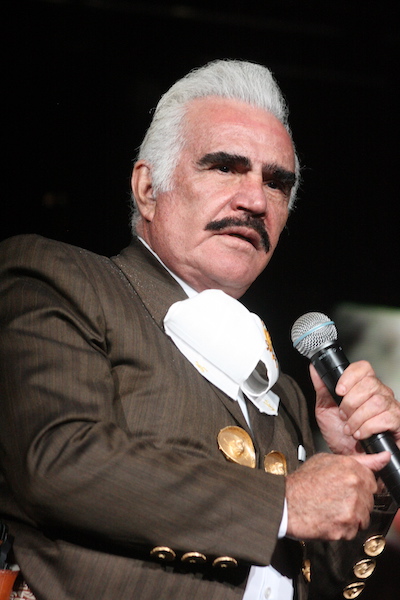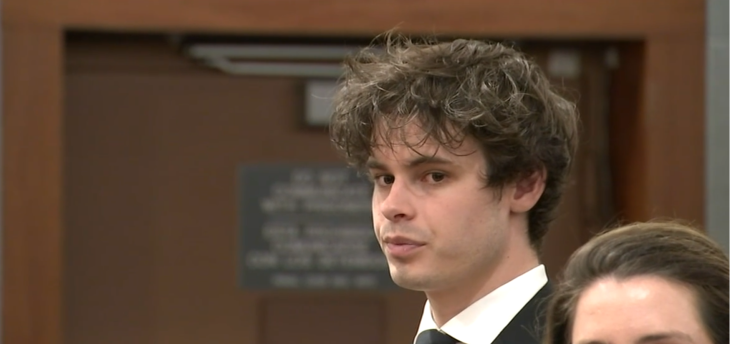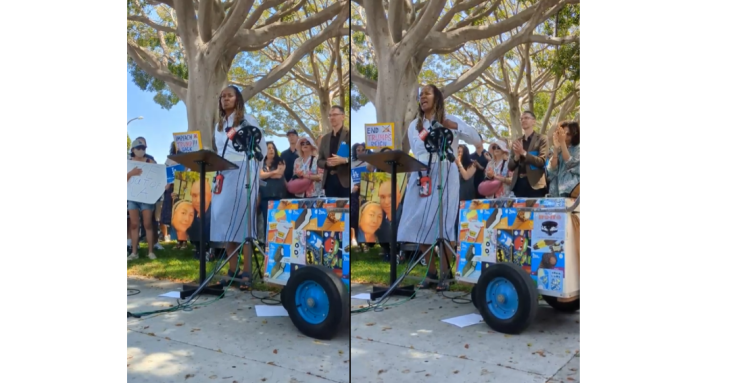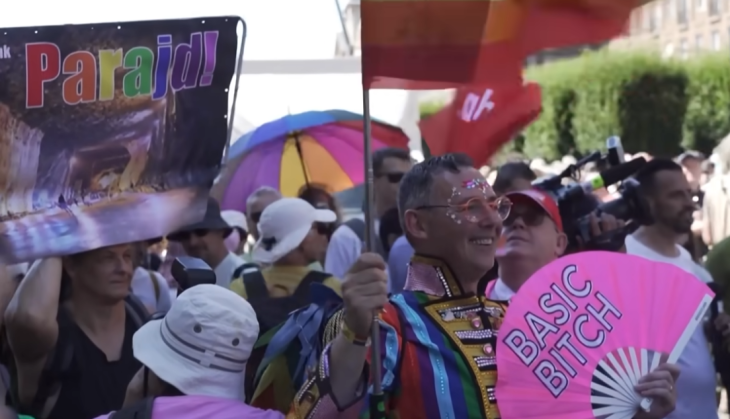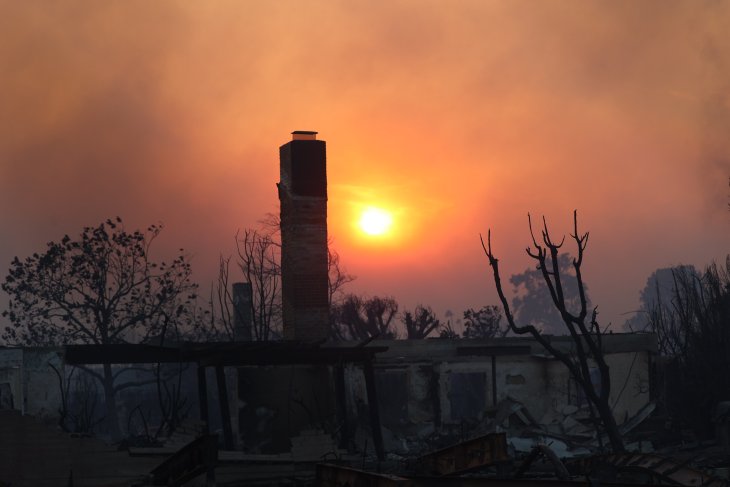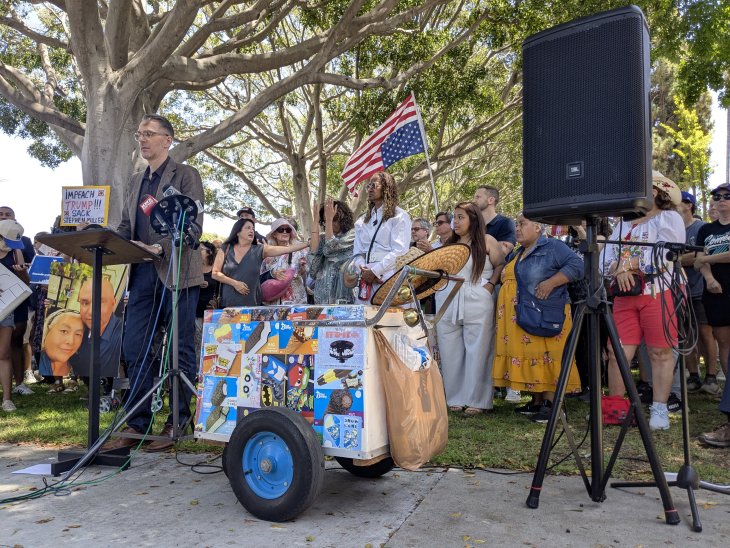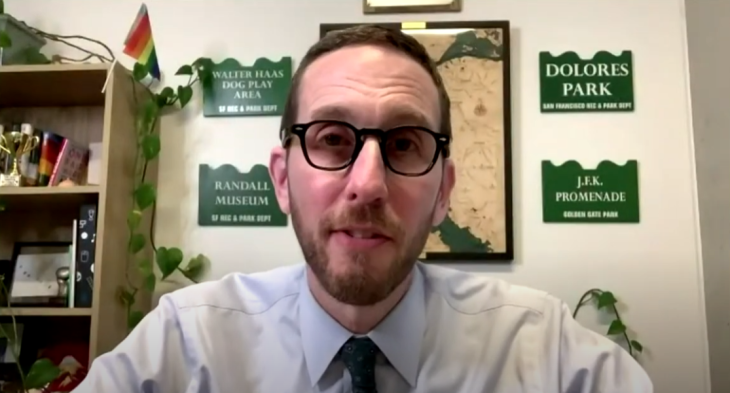“Vicente Fernández Street” will be located along what is currently Bailey Street, between First Street and Pennsylvania Avenue
By Susan Payne
Unanimously, the Los Angeles City Council approved a proposal to rename portion of Bailey Street in Boyle Heights after the renowned mariachi and greatest icons of ranchera music, the late Vicente Fernández.
Backed by Councilmembers Kevin de León, the decision was made in February, according to The Los Angeles Blade, and included support from area residents and the musicians who gather to play in Mariachi Plaza, a historical starting point for mariachi-ranchera music in the greater Los Angeles region.
“The legacy of Vicente Fernández continues to resonate and inspire people worldwide, making us proud to call ourselves Latino,” de León said during the council meeting. “Today, our city council took the rare action to recognize “Chente” for his cultural contributions by memorializing him at one of our city’s most cherished venues, Mariachi Plaza. Through his music, he has etched his place in history and on the hearts of fans who will forever cherish him.”
Throughout his career, Fernández, one of the best-selling Mexican artists of all time, won three Grammy awards, nine Latin Grammy awards, 14 Lo Nuestro awards and is a star on the Hollywood Walk of Fame. He has sold 50 million recordings worldwide with 51 albums listed on the Recording Industry Association of America for gold, platinum and multi-platinum-selling records.
“Vicente Fernández Street” will be located along what is currently Bailey Street, between First Street and Pennsylvania Avenue, adjacent to the Mariachi Plaza, according to the Blade. The approved measure was significant for the community that El Rey de la Música Ranchera (The King of Ranchera Music) be named at the location that fans of mariachi music attended performances.
Opposition to renaming the street by The Boyle Heights Neighborhood Council and others came from the singer’s history of alleged homophobic and misogynist conduct that disqualified him from receiving the honor.
Although known as the “El Rey de la Música Ranchera” to millions of fans, the singer led a life filled with success, tragedy and scandal, the Blade reported.
An unauthorized biography, written by Argentine journalist Olga Wornat, was released prior to the singer’s death at 81 in December. Wornat writes that family tragedy, “a life absent as a father” and infidelities to his wife María del Refugio Abarca, “Cuquita,” plagued the musical maestro.
In January, David A Silvas, vice president and chair of the planning and land use for the Boyle Heights Neighborhood Council said,“[…] feedback that has come to my attention about singer Vicente Fernández’s past history of sexual allegations as well as his views on not wanting to receive any organ transplant from an ‘addict’ or ‘homosexual’ […] the Planning and Land Use Committee came out with a Community Impact Statement opposing Councilmember Kevin de Leon’s proposed motions.”
Fernández, in an interview with Spanish language media outlet El Universal in May of 2019, told the paper that while he was a patient in Houston to undergo a liver surgery, he decided to reject a transplant because he did not “want to sleep with his wife while having the liver of another man, who could have been a homosexual or a drug user.”
In January of 2021 a photograph of a 2017 ‘meet & greet” with fans went viral as in the photo Fernández appears to be cupping a female fan’s breast, the Blade reported. According to media accounts a few days later, Fernández issued an apology to the woman’s family, stating that “I admit that I was wrong, I don’t know if I was joking, maybe it was a joke […] I don’t know. I do not remember, there were many people (with whom I took photos), sincerely I offer an apology.”
One month after, news broke that Fernández was accused to sexual assault by a singer who was still a minor at age 17 at the time it occurred 40 years ago, the Blade stated. The singer did not pursue legal action against Fernández.
A source told the Blade, “the very culture and the times of his career in some ways gave Fernández cover with many in the public especially Latinos.”
“When one considers the place ‘Chente’ occupies in Mexican culture and among Latinos — his music is the background to virtually their entire daily lives — it is not surprising that especially the older generations will give him a pass,” the source told the Blade.
Carol Montes, a member of the neighborhood council, who spoke for residents in support of the name change, said, “I’m just saying his career, what he has contributed culturally and emotionally to millions of people outweigh these allegations.”

